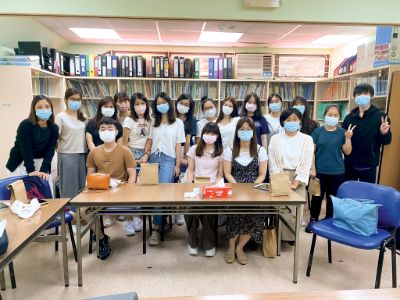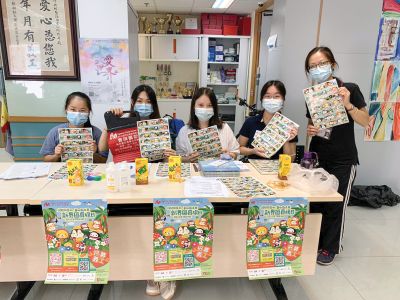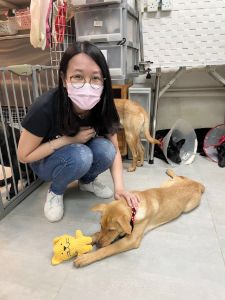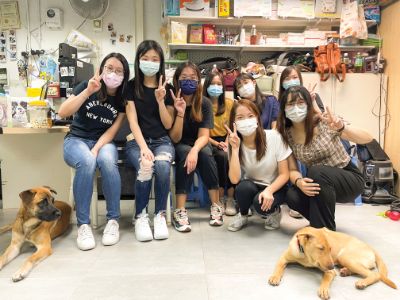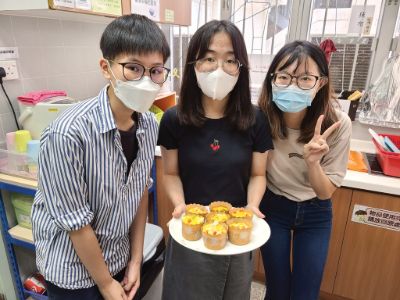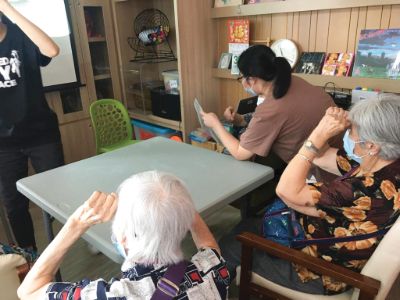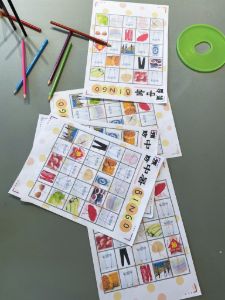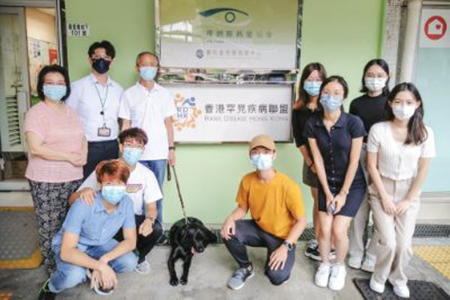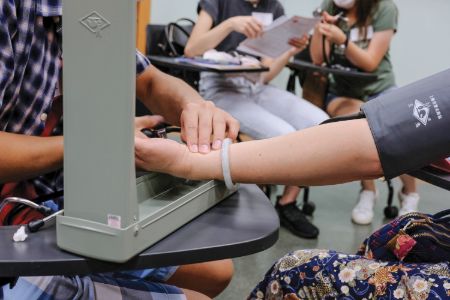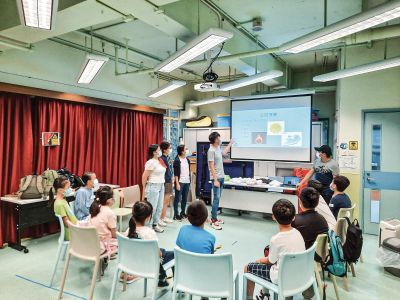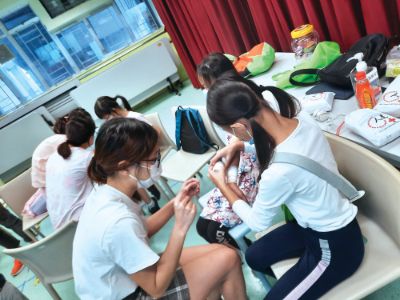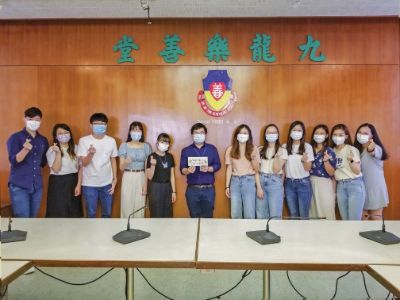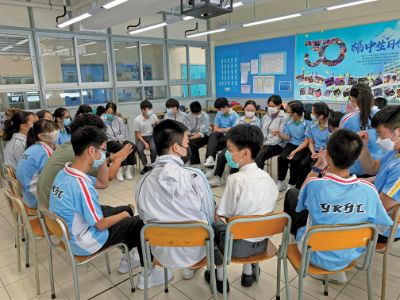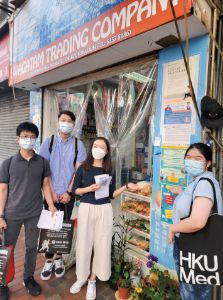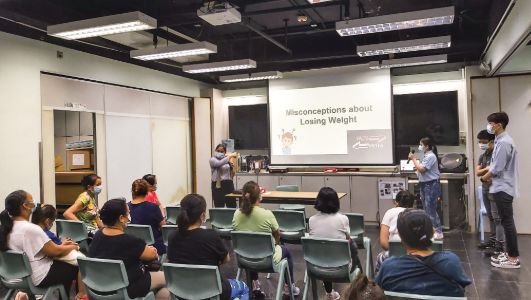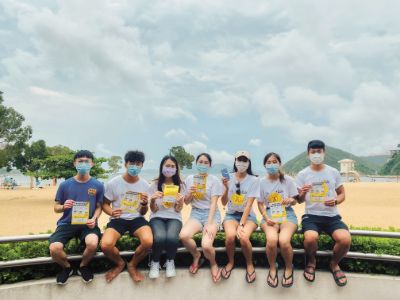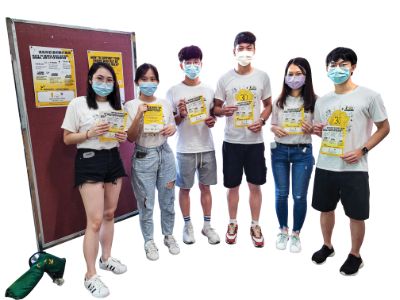Local Service Learning
Students who went out into the Hong Kong community to lend a hand to non-government organisations under the School’s Life Enrichment Learning programme, reflect below on the valuable lessons they learned in the process.
The Life Enrichment Learning programme was launched in the 2019/20 academic year to provide students with opportunities to participate in experiential learning activities locally and internationally (COVID-19 restrictions allowing). Students plan their own activities which can be anything from a student exchange, academic visit, study trip or practical and/or service experience, to research internship, international event or interdisciplinary learning. The following feedback comes from Year 2 and Year 3 students who undertook local service-learning partnerships.
Miss Audrey Cheung (BNurs N25)
“Last summer, I spent precious time at Against Child Abuse. Apart from volunteering at the Flag Day to raise funds for them, Against Child Abuse also gave us opportunities to organise talks and workshops. As a Year one nursing student at the time, I didn’t have much experience in organising such activities but luckily, mentors and the NGO provided me with lots of guidance. I think practical nursing skills are more important than theories, for example, knowing that we have to speak slowly and precisely with young children. During the activities, I was in contact with different families, which helped me to understand the importance of popularising medical knowledge to promote public health. The Life Enrichment Learning programme is a chance for us nursing students to put theories into practice and equip us to become professional nurses.”
Miss Emmie Chan (BNurs N24)
“Due to COVID-19, I stayed in Hong Kong for a couple of months for the long and hot summer. But I was grateful for the local service-learning partnership opportunity and collaborated with the Lifelong Animal Protection Charity (LAP). This experience coloured my rather dull summer. In addition, I had a chance to do some reflection.
I remember the first thing I saw at LAP was the window walls and the next thing I knew two big, brown dogs started barking at me. They continued barking even after I entered the centre. I felt rejected and disappointed. I was immediately put to work there, feeding and walking dogs, though I couldn’t stop petting them whenever I was near them.
On my third time at LAP, these two big dogs were still the first thing I saw, but out of my expectation, they didn’t bark but remained calm. This was probably because we had spent some time together. I was deeply impressed and realised it took some time for the dogs and I to develop a connection, and that the same concept applies to interpersonal relationships.
I am grateful for this service experience in which I learned more about the situation of pet abandonment in Hong Kong and how to take care of dogs. What is more, I gained a new interpretation of interpersonal relationships.”
Miss Hebe Tang (BNurs N24)
“I am honoured to have participated in volunteer service for The Boys’ & Girls Clubs Association of Hong Kong (BGCA) Shaukeiwan Children Centre and Library during the summer break. Apart from designing activities, we also joined the Center’s other activities, such as visiting a farm, playing ball games and visiting elderly people.
My colleagues and I were very reserved at the beginning as we didn’t have much experience with young children. But we became more engaged during the activities as the children were very passionate. Though we encountered difficulties when leading games for younger kids as they didn’t understand the game rules, this gave us an opportunity to practice communication and leadership skills. We were proud of ourselves for the games we designed.
This service provided a chance to learn how to handle people of all ages, which will help with our paediatric practicum in future.”
Miss Kiki Li (BNurs N24)
“Five classmates and I participated in the Local Service-Learning Partnership (LSLP) this summer as volunteers at the St James' Settlement Kin Chi Dementia Care Support Service Centre. We helped to design health activities for elderly people with dementia and organise other activities over three weeks.
During the activities, we took care of elderly people with different degrees of dementia. Though they are diagnosed with the same disease, their behaviors can differ greatly. We had to get to know them in order to design suitable activities. The most unforgettable thing is that they willingly shared their experiences of their youth. Despite deteriorating memories, they could still recollect details of when they were young. We benefitted a lot from talking to them. Some were also not very mobile, but were still very eager to participate in the activities. We found this very touching. These three short weeks were enjoyed by both the elderly people and ourselves. This was truly a meaningful experience.”
Mr Nicholas Choi (BNurs N24)
“Six classmates and I participated in the Local Service-Learning Partnership organised by Rare Disease Hong Kong and the School of Nursing. What impressed me most in this three-month journey is that rare disease is not rare at all. In fact, there are many rare disease patients waiting for medical support in Hong Kong. As a nursing student, my heart sank with this realization. There is still much unknown medical knowledge to be discovered, and many patients suffer as a result.
I participated in many rare disease activities, for example, a school talk, patient visit, “The Rare Disease Human Library”, policy lobbying workshop, etc. These activities help us understand rare diseases inside and out and at all levels, from basic knowledge about rare diseases to policy lobbying, and to patient advocacy to fight for medical support, etc. This precious experience cannot be obtained through a regular classroom setting. Also, I realised that if we are willing to try to understand patients’ needs, patients’ lives could be very different.
Thanks to RDHK for organising the series of activities, which inspired us to reflect on the important traits that future nurses should possess.”
Mr Or Ho-lam (BNurs N24)
“This summer, I spent three rewarding months at The Boys' and Girls' Clubs Association of Hong Kong – Jockey Club Southern District Children & Youth Integrated Services Centre, assisting in the organisation of activities, for instance a first aid class, a reading partners programme and a biking trip.
The most memorable activity was the first aid class as we were responsible for designing the content and teaching the relevant knowledge. It was not easy to teach a group of 10-year-old children how to use a triangular bandage. But with the help of groupmates and our well-prepared presentation slides, the teaching was a success. I was happy to see the children prepare a simple sling with the bandage. A sense of satisfaction came from helping the children and attending to their needs. This is what nursing students like us would like to pursue.”
Miss Sherry Leung (BNurs N24)
“Since outgoing exchanges were affected by the pandemic, I spent my summer break in Hong Kong participating in a local programme for the Life Enrichment Course. In just a few months, I learnt a lot during my service at The Lok Sin Tong Benevolent Society Kowloon. My groupmates and I organised different activities and talks with assistance from social workers and nurses. We were also privileged to visit the community pharmacy and get a glimpse of its operation. We also discussed with the NGO staff on the development of District Health Centres in recent years from a nursing perspective.
My experiences there made me realise people in the same age cluster may have different needs and characteristics. We used to generalise the terms “teenagers” or “elderly people” for our service groups in past activities. However, I noticed that we need to use different ways or methods to deliver messages, for instance junior high students or senior high students or even tailor-made for students from each year when we organise activities. I wish I could make use of what I have learnt from this Life Enrichment experience when I serve patients in the future, and provide suitable treatments and health education according to their individual needs.”
Miss Vinki Chan (BNurs N24)
“Our team joined the service activities at United Christian Nethersole Community Health Service for the Local Service-Learning Partnership. Not only did we organise activities such as health assessment, we also held a health talk. The most unique yet difficult feature during these three weeks of activities was that our service audience were Southeast Asians. Though we could communicate in English with some of them, many did not speak English. We could only rely on the interpreter’s assistance to provide instructions and content during the health assessment and health talk. The misunderstanding caused might lead to delays or even cause problems. I think communications skills and teamwork are very important. We tried to use simple yet succinct sentences and instructions to let our audience and interpreter understand our messages accurately and efficiently. As nursing students, this experience could help us learn how to communicate with patients and their carers effectively.”
Miss Wendy Yeung (BNurs N24)
“I felt nervous collaborating with KELY at the beginning of the Local Service-Learning Partnership because I did not have experience working with NGOs.
We wanted to achieve KELY’s mission to promote adolescent alcohol-related harm reduction, so the activity design was very challenging. We were clueless at the beginning. But after joining KELY’s workshop, we understood their mission and alcohol-related knowledge. Through our mentor’s recommendations and groupmates’ discussion, we decided to organise activities such as setting up a booth at university to demystify and promote knowledge about alcohol consumption, and dispatching water and energy drinks to drinkers at West Kowloon and Repulse Bay.
Dispatching drinks at the beach is the most memorable activity among all as we gained experience and could share knowledge with the target audience bravely and fluently, given all we had learnt from the previous two activities. Besides, the number of drinkers and the varieties of alcoholic beverages exceeded my expectation. Hence, getting people to understand the importance of responsible drinking and achieving the activity goals gave me a sense of accomplishment.
I learnt a lot through this partnership, for instance about communicating between the NGO, mentor and groupmates, logistics arrangements, flexibility in management, etc. I am delighted that HKUSON offered this opportunity to collaborate with KELY. And I sincerely thank KELY, my mentor and groupmates for their contributions, which meant the activity could be completed successfully.”
Back

